“The absolute apparent catastrophe of watching my son glued to the XBox to the point that he does not even hear what I am saying is more than driving me up the wall.
It is filling me with the most disabling and painful guilt and absolute dread that I am failing as a Dad.
It does not stop with the XBox. When the XBox is switched off, out comes the phone and YouTube and texting.
The screen seems to have become his family.
Are we responsible? Did it start when we planted him as a little one in front of the TV to selfishly grab some “me” and “us” time – and just a few seconds to clear up the house , toys and create some kind of order out of the chaos that parenthood threatened to consume us with? Have we always been such awful parents?
Today time seems to be spent negotiating getting him away from screens long enough to eat, or even watch a movie. Even family time seems filled with an all consuming countdown timer in the sky that has his real attention as he counts down the seconds until he can get back to what matters to him – his XBox.
Covid has amplified the issue and left us all feeling trapped. Going out feels like risk and carries worry, school life is compromised, friendships dislocated.
He is losing all interest in reading too – and he use to love books.
I just feel that I am losing our son…. perhaps have already lost him.”
Letter from a Dad to SchoolsCompared. February 2021.
The challenge of reducing children’s Screen Time before the pandemic was tough enough, but adding in home schooling and social distancing, it has become a bigger issue than any of us as parents could have imagined.
Looking at the letters we receive, it is an issue that is concerning so many of us as parents. And there seems to be no answers out there to take away the worry – and yes… often guilt.
From physical to mental consequences, the consensus seems to be that the responsibility of Screen Time falls on our shoulders as parents. It is our job, our responsibility, to monitor and control screen time.
The problem does not stop with our children. Many of us have also seen our own lives transformed from “normal” to being one defined by being tethered to our phones. How many of us have been out to dinner to see those around us talking not to each other but to their phones. Why did they, we, even leave our homes in the first place?
We spoke to experts to see if we could get some grasp on whether we need, as parents, to be as worried as many of us are.
- How much time should, exactly, children have in front of screens?
- Is screen time bad, or are we worrying unnecessarily?
Some of the issues thrown up were not even on our radar. We wanted to find positives – to write an article saying all is well.
But, in the end, we found instead that it’s not so simple, or easy, to find ways out of the worry about screen time.
There are positive voices at the end of the article – but it’s telling that we found them, eventually, not by talking with experts but, instead, listening to other parents who, like us, are at the coal face of a world being transformed by technology so fast that we do not even have time to even blink.
Physical Impacts of Screen Time
Dr. Alaa Bou Ghannam from Moorfields Eye Hospital, says he has seen a significant increase in myopia, or near sightedness, in children who were previously normal.
“I have seen an increase in the amount of near sightedness in patients who were known to have low or moderate myopia before.
This surge is partly caused by spending less time doing outdoor activities and more time focusing on near objects which is known to worsen myopia.”
Additionally, young patients have reported more headaches and dry eyes, an inability to focus, eye pain, redness and tearing.
Dr Ghannam says these are all clear signs of digital eye strain that is caused by spending a significant amount of time in front of screens.
Additionally, too much blue light can also impact sleeping, and Dr Ghannam suggests a limit of two hours daily, though with online learning, this offers a huge challenge. As a way round this, he suggests cutting down on screen time at weekends, finding other leisure activities to take children away from the screen.
“As per the recommendations of the American Academy of Pediatrics, children less than 18-24 months of age should not use digital screens except for video chatting,”
Dr Ratheesh Kumar, Specialist Paediatrician at Aster Specialist Medical Centre in Ajman, says parents must avoid seeing screen time as a toy, or a distraction while they work from home.
Dr Kumar has seen the manifestation of chronic neck and back pain due to poor posture found from long periods in front of a screen, urging parents to set up an ergonomic work space much like that suggested for a working office, with chairs with ample back support and the device at eye level.
Priya Karthikeyan, a physiotherapist at Aster Hospital, Mankhool, says the challenge for parents is huge:
“Today’s generation cannot imagine a world without smartphones, tablets and internet. If you look into the consequences of this, there are many.”
Ms Karthikeyan cites social and communication skills suffering, an inability to deal with real life situations and a reduction of each child’s ability to understand and manage emotions – not least because some of the more emotional issues arise from too much screen time itself.
Physically, she sees more and more children suffering from the likes of joint pain, cervical pain and wrist issues.
What can, should, we do?
Dr Ghannam recommends:
- When viewing screens, adjust your child’s brightness and contrast to a comfortable setting or use night mode, which will reduce the glare.
- Sitting an arm’s length away (18-24 inches) from your computer can be beneficial.
- We recommend patients follow the 20-20-20 rule, which advises to take a 20-second break to view something 20 feet away every 20 minutes when using a digital screen.
Dr Ghannam suggests that encouraging sports and outdoor activities for older children, those where they are exposed to sunlight, has been found to slow the onset of short-sightedness.
Dr Kumar recommends:
“That children aged from 2 to 5 years may be permitted to use the screens for just one hour per day, focusing on high quality, educational programmes.
Parents should co-view media with children to help them understand the content watched by their children and apply it to the day to day life with a holistic approach.”
Ms Karhikeyan says the best way to help mould healthy habits, is to set an example:
“Children are great mimics so better they watch what you do before setting limits on them.”
Recommendations include:
- set screen time as per the child’s age
- set ‘off-screen’ time and get them involved into physical or outdoor activities
- set some strict exercise time or involve them in their favourite sport or activity
- plan a ‘digital detox’ day once weekly
- show interest in your children by talking, observing and discussing things
- plan with the teachers on educating them about the harmful effects it can cause to their body and mind
- totally ‘off-screen’ during bedtime
- introduce them to functional fitness courses which can enhance social interaction, self esteem and focus
- get them to help you with house work /kitchen/gardening
Mental Impacts of Screen Time
Dr Kumar warns of “many adverse mental and physical effects of children being given too much screen time.”
“In children with a higher usage of screen time, we can see the consumption of a less healthy diet.
“Higher energy intake in turn would result in obesity and a lack of proper exercise due to higher screen time also contributes to the poor health of the child.”
Dr Kumar says that:
“Children with screen time of more than two hours per day tend to have more depressive symptoms due to the lack of socialisation, which may lead to anxiety and depression.”
Dr Laila Mohamadien, Specialist Psychiatrist at Medcare Hospital in Sharjah, says children have become very attached to screens:
“During this era and specifically this time of Covid, kids are more attached to everything related to screens.
The majority of their time is spent studying online, leisure and fun time either on social media or PlayStation and games, so our kids spend more than 80 per cent of their time on screens.”
She says children are becoming like “machines” in this electronic era, and communication is key.
We asked Dr Mohamadien for the warning signs we should look out for to know when screen time was becoming an issue. She advised to monitor for:
- Isolation in his or her room all the time
- Detachment from the family and friends
- Looking anxious or sad all the time
- Decreased appetite
- Attacks of dizziness or nausea
- Fits or seizures due to too much exposure to radiation in a child susceptible for epilepsy or with family history of epilepsy
Speaking with experts, we found very little positive feedback about screen time. Medical professions, certainly those we spoke with, are worried.
The OFCOM Survey
Arguably of all the surveys completed to date, the ongoing OFCOM Survey of children between 3 and 15 is the most enlightening in understanding how we, as a family, are fairing compared with other parents. The survey has been running since 2005 to work out just how much impact screen time is having on children and families and how the world is evolving before our eyes.
These are the key facts of their 2019-20 report, this compiled before the impacts of Covid 19 which experience suggests will significantly increase the rate of change to our relationship with screens:
- Half of ten-year-olds now own their own smartphone. Between the ages of nine and ten, smartphone ownership doubles – marking an important milestone in children’s digital
independence as they prepare for secondary school. - Use of smart speakers among children aged 5-15 doubled in 2019. This means that, for the first time, they’re more widely used than radios.
- More children watch video-on-demand (VoD) than watch live broadcast TV. Viewing of VoD has doubled over the last five years. One in four children do not watch live broadcast TV at all.
- YouTube remains a firm favourite among children. 5- to 15-year-olds are more likely to pick YouTube as their platform of choice over on-demand services such as Netflix, or TV channels
including the BBC and ITV. - Children’s social media use is diversifying. WhatsApp in particular has gained popularity over the past year, joining Facebook, Snapchat and Instagram as one of the top social media
platforms used by children. - Newer platforms such as TikTok and Twitch are gaining popularity. TikTok is used by 13% of 12- to 15-year olds – up from 8% in 2018 – while Twitch is used by 5%.
- Girl gamers are on the increase. Almost half of girls aged 5-15 now play games online – up from 39% in 2018.
- Rise of the ‘vlogger next door’. While high-profile YouTube stars remain popular, children are now increasingly drawn to influencers who are often local to their area, or who have a particular shared interest – known as ‘micro’ or ‘nano’ influencers.
- The ‘Greta effect’ and online social activism. 2019 saw an increase in older children using social media to support causes or organisations, while one in ten signed an online petition of some sort.
- Children are seeing more hateful online content than they used to, and several children in our Media Lives research reported seeing violent and other disturbing content online. Half of 12-15s say they have seen something hateful about a particular group of people in the last year – up from a third in 2016. Four in ten took some form of action, but the majority ignored it.
- Parents are also increasingly concerned about their child seeing self-harm related content online and some elements of online gaming. Almost half of parents of 5-15s are concerned about their child seeing content which might encourage them to harm themselves, up from 39% in 2018.
- There have also been increases in the proportion of parents of 12-15s worried about in-game spending (from 40% to 47%) and game-related bullying (32% vs 39%).
- Fewer parents feel that the benefits of their child being online outweigh the risks compared to five years ago. Just over half of parents of 5-15s feel this (55%), compared to two-thirds (65%) in 2015. However, there are indications that more parents are talking to their child about online safety (85% of parents of 5-15s), than compared to 2018 (81%).
How much is too much Screen Time?
The American Academy of Paediatrics (AAP) and World Health Organization (WHO) recommendations are:
For older children, there is mixed opinion – but the broad expert consensus seems to be that screen time should be limited to two hours or less, excluding study. Few parents we spoke with with older children believed that the two-hour limit applied, at all, to their experience of their teen’s screen use at the weekend.
Is there any good news about screen time?
We spoke with UAE parents across 37 families and specifically asked them to come up with positives. Whilst not scientific, the following are helpful insights into the positive views of parents who have grappled with the issues and found reasons to support at least some screen time:
- Children need screen time to learn. The Internet, even if it has not replaced books, has become an important up-to-date reference source to be used with them. Children will fall behind if they cannot access screen time.
- “Other children use screens. If we limit them unduly, our children will become outsiders. Childhood is hard enough without taking away the new currency of connection.”
- Games consoles are no less a vehicle for sport than chess or other competitive sports. They teach children how to compete and excelling in games is now big business with e-sports. Chess is already an Olympic Sport – e-sports will follow as just a matter of when not if.
- Aversion to screen is just a Luddite refusal of progress. “Our childhoods were not better, just different.”
- Children communicate through Games Consoles and phones. During Covid-19, this has been a life saver for children. Without screens, as a means for children to communicate with each other, the impact of Covid 19 on children would have been catastrophic and isolating.
- Screens enhance learning. “Some of the on-line lessons our son studied during Covid provided by the school solved issues in Maths that were never solved in the classroom. He had time to learn, and kept rewinding the videos until he understood them. You cannot re-wind a teacher in a classroom.”
- Confidence. Games provide children with tasks that are achievable with self discipline, development of skills and concentration. Achievements in games allow children to feel confident – and share their achievements with their peers.
- Screen enable children to share views, care and knowledge. “Our daughter has become more compassionate and emotionally intelligent through using social media, not less.”
- “My children both struggle with handwriting. By using laptops, they have become able to express their thoughts legibly, and more quickly, so that their teachers can see just how talented and imaginative they really are.”
- “We use TV, games consoles and phones socially as a family. They are not isolating activities, but shared ones.”
- “I really do not understand why screen time is any different to reading. No one ever says children read too much – so why now worry if they are on-line too much?”
One final comment from a parent we think is worth quoting in full:
“My son had been bullied at school. Then Covid happened and we worried about him being cut-off from his friends too. The XBox during Covid has seen his social circle flourish. We were worried at first, but looking back we have no regrets.
Without his console, he would not have maintained and grown the friendship group he has today for when he finally returned to school.”
What do schools say?
Schools across the UAE, since publishing the feature, have asked us to be included, so we will be working with them over the coming weeks to provide further views and advice. This subject has struck a very deep chord with parents and schools.
In the interim Philippa Wraithmell, Head of Digital Learning at Cranleigh School Abu Dhabi contacted us to say that she feels very strongly that “parents don’t have to despair” and that she would like parents to understand that schools across the UAE are working hard to support parents and students navigate the minefield:
Such is the importance of the issue, Cranleigh School Abu Dhabi holds weekly digital literacy lessons and discusses issues such as safety online. The school also uses the National Online Safety platform to educate parents, not least, if children are found with inappropriate content.
Games consoles, whether Xboxes, Nintendo or Playstations can, Ms Wraithmell says, be tricky:
“Students feel that there is a lot of pressure to be on the new ‘cool’ platform or game.
We would always advise from as young as possible we get children and parents to discuss their digital use and parents to question what and why they want to use the game. This will allow you to build conversations which can support your child to understand why you might be concerned about specific games.
The peer pressure can stop some students being as aware as well of the dangers of the games.
They feel friends are using them so they will be fine.
So the education side from the school is very important and we do embed this powerfully within the schools digital literacy curriculum to support the issues being faced by the majority of parents and students. This is absolutely not an issue unique to one family or only a small number of students – and parents should not feel alone in tackling it.”
To make the point that technology and apps are not all negative, Cranleigh School Abu Dhabi emphasises, for example, their student’s use of Accelerate Reader which links with an application parents can get at home called Epic, a tool to help students with reading. It also recommends Kaligo as a handwriting tool which uses AI to develop the students’ learning, and can be used at home by parents.
Bottom Line? The SchoolsCompared.com View on Screen Time.
This article only touches the surface.
Cyber-bullying, deciding how any of us know can what is true and false (think Trump), the financial pressures of simply keeping up (Scalpers are inflating on-line prices for the new XBox and PlayStation beyond the reach of most of us), the speed of technological change and demands on children (few of us learned coding for a start), managing the risks/temptations of children copying other’s work rather than creating their own… It’s a brave new world out there and it seems our generation of parents has been thrown head-first into a raging storm where any firm answers to issues are in very, very short supply.
Only this week we read about fifteen-year-olds trading stocks. Whatever happened to the paper round?
Perhaps then, this is how we have to look at this. The technological change around us is happening at speeds and with a novelty that none of us can get a grasp on in the way that parents in the older, screen-free world of yesteryear could, and did.
The pressure needs to come off.
We just have to go with this. It’s like setting sail on a journey without maps – but what choice do we have?
Schools have been a lifeline in this new world. CPD has never been so important for teachers. The best schools are working with parents – and Covid has only strengthened this as families and schools have been ever more intricately linked through distance learning.
Covid 19 has fallen right in the middle of arguably the most challenging landscape for parents and students (and schools) in living memory.
Screen time worries us all – but in the Covid 19 pandemic it has also been a constant that has protected the education of our children and the friendships they need, as much as we do as adults, to have some semblance of a life worth living.
Too much screen time? Too little? We are really all on our own as parents to decide what is right for our own children. There is no certainty that we will get this right. But then…. no parent, ever, has been sure of getting everything right. There is no manual out there for being a good parent. There never has been. The one thing that is certain is that guilt and worry about screen time is helping none of us.
Doing the best we can for our children, in a world that seems to have very few answers to anything, let alone what is really important, is surely the best any of us can give.
Or should be asked to…
© SchoolsCompared.com. 2021. All rights reserved.
Notes for parents.
The full OFCOM Report can be found here.
Further support for parents struggling with many of the issues raised in the feature can be found by getting in touch with the Beat the Cyberbully organisation here.











































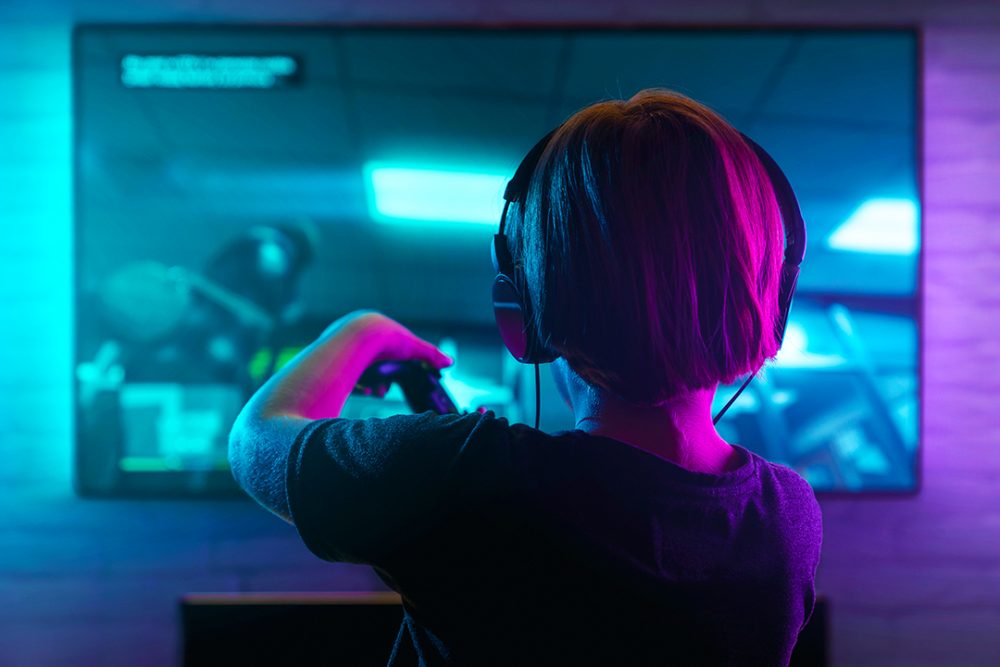

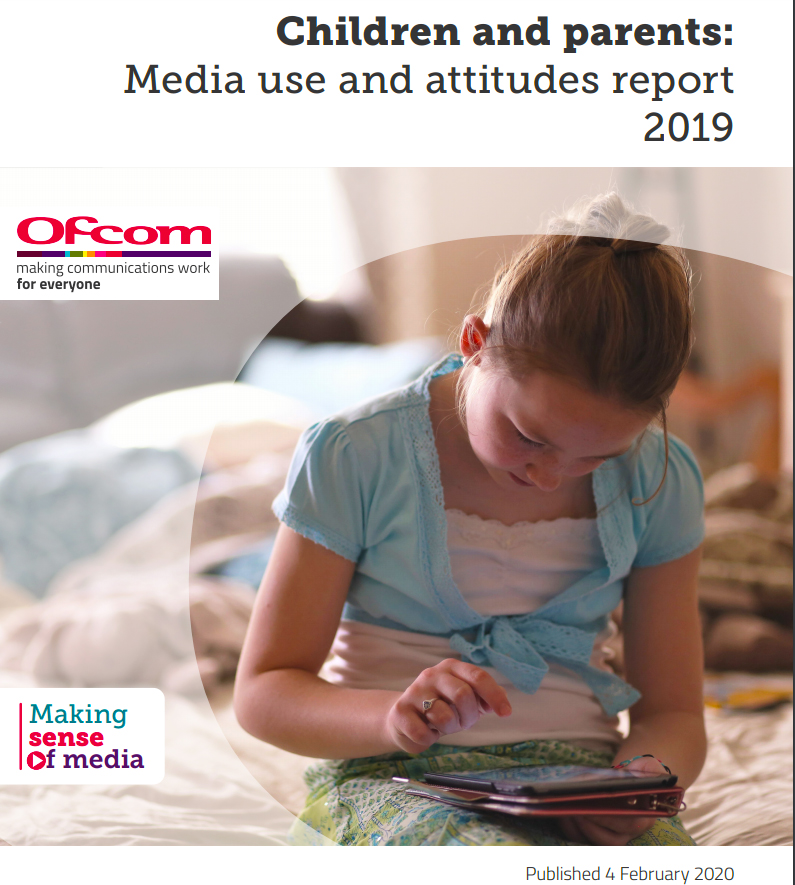

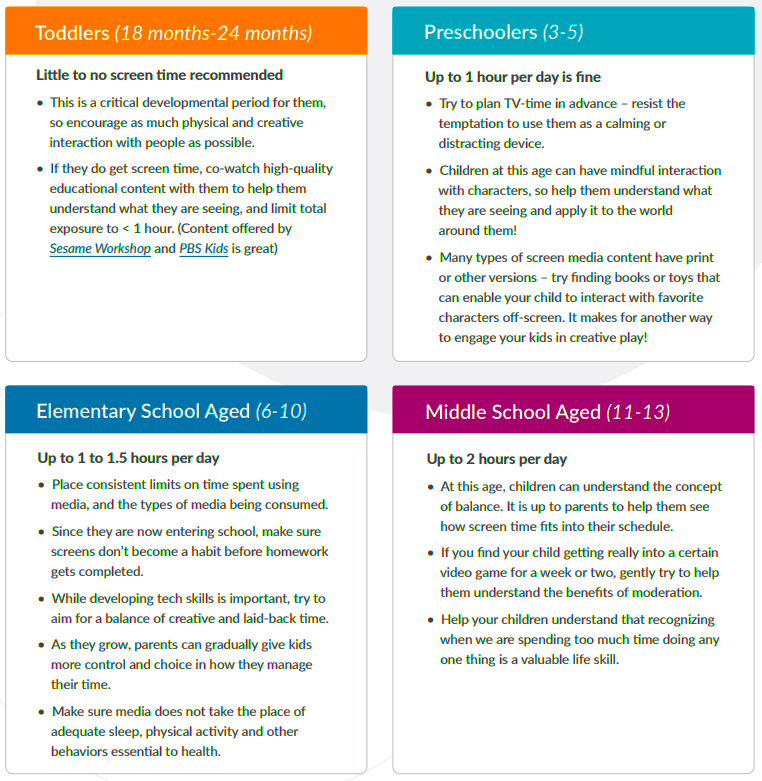
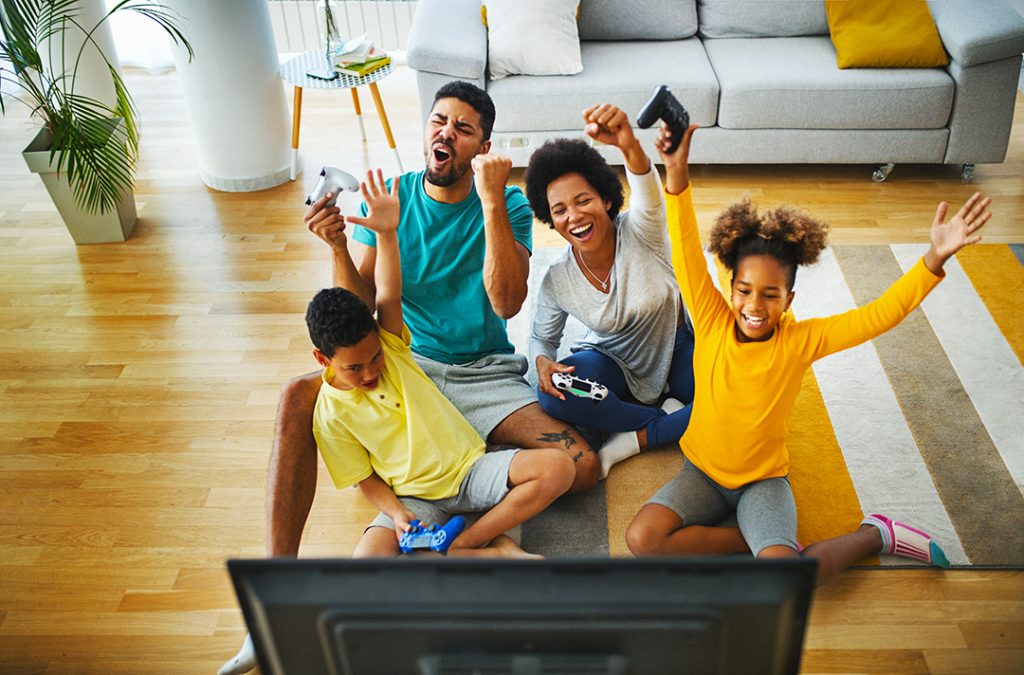









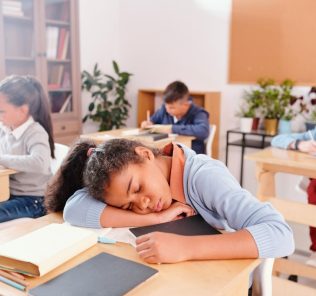
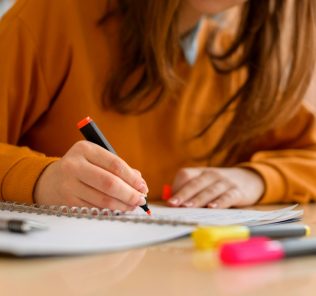

















Leave a Response